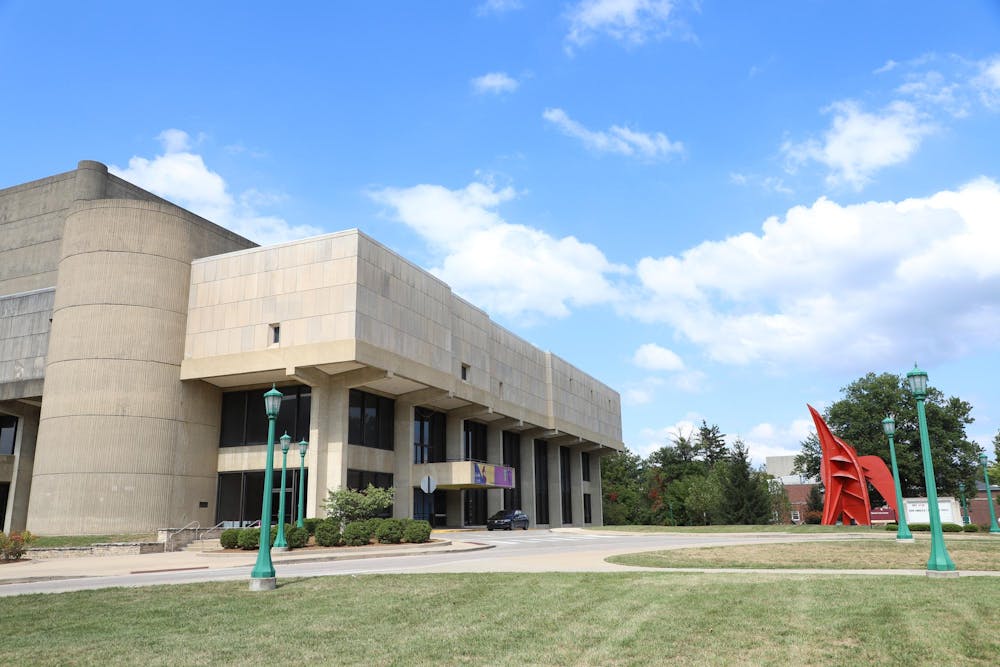What does it mean to be from the United States?
This question is among many ideas that the “Charles Ives at 150: Music, Imagination, and American Culture” festival seeks to explore. From Monday, Sept. 30 to Tuesday, Oct. 8, the Jacobs School of Music – often in collaboration with departments across campus, such as history and comparative literature, and scholars from across the country – will celebrate the legacy of the at-once enigmatic, misunderstood, and quintessentially American composer.
Ives' music is commonly perceived today as having been on the creative cutting edge of the era in which it was composed. From his adventurous use of dissonances, polytonality, quotation, which involves the borrowing of musical materials, and simultaneous imposition of several musical streams on top of each other, Ives did not shy from a novel compositional approach. Yet, to J. Peter Burkholder, IU distinguished professor emeritus of musicology and co-festival curator, this novelty only tells a fraction of the story of Ives’ music.
“He is a composer who wants to continue tradition. Deep in his soul, he’s a romantic,” Burkholder said. “People often think Ives is strange, or that he’s ‘toxic’...there are pieces out there where he’s deliberately trying to make a point by doing new things, but that’s not where his core is. His core is in the representation of people’s hearts.”
The celebration of Ives’ Sesquicentennial is on a mission to understand Ives precisely as Burkholder describes: a sensitive artist dedicated to representing the human, and particularly the American, experience as expressively and fully as possible. Ives’ body of work, which includes pieces influenced by hymns, folk songs, and nineteenth-century literature, will be upheld by the festival as a mosaic of American culture.
To Joseph Horowitz, renowned American cultural historian and founder of Music Unwound, a program funded by a National Endowment for the Humanities grant bringing cross-disciplinary classical music programming to educational institutions, Ives is an integral link to our broader cultural heritage.
“[Ives] is as important as Herman Melville, and as accessible. He’s as important as Mark Twain, and as accessible. He’s as important as Walt Whitman, and as accessible,” Horowitz said.
“Melville connects directly to Ives. They both explicitly embraced the unfinished in aesthetics…they’re profoundly kindred. Ives is a natural and inescapable opportunity to leverage a broader and deeper understanding of the American experience.”
The nine-day festival is an interdisciplinary examination of Ives’ work. Having kicked off Monday with a concert by venerated baritone William Sharp and University of Denver Lamont School of Music piano professor Steven Mayer, the festival’s programming features a diverse array of performances, master classes, and panel discussions, all dedicated to destigmatizing Ives and providing the public a more panoramic view of his legacy.
This weekend will bring a particularly varied and extensive slate of events, with the festival’s climax, a concert of Ives’ most acclaimed works performed by the Philharmonic Orchestra and accompanied by a new contextualizing visual presentation, arriving 8 p.m. Oct. 5 at the Musical Arts Center. Christoph Irmscher, IU distinguished professor of English and director of the Wells Scholars program, will participate in a panel focused on the influence of the Transcendentalists on Ives’ music between 2 p.m. and 5 p.m. Oct. 6 in Auer Hall.
“If you’ve read “Walden,” you know that when [Henry David Thoreau] listens…he finds music pretty much everywhere: trees make music, birds make music; there is an aural landscape to the environment. Charles Ives is interested in that same thing,” Irmscher said. “Music is not just what you put on the page.”
Irmscher believes that drawing such connections has significant educational and social value.
“In higher education today, the boundaries between disciplines become less and less porous,” Irmscher said. “That, to me, is kind of sad. What’s so great about IU is this thinking that goes across boundaries. And, really, you need this in whatever you do. You can become invested in different things…we can think of this festival as a model.”
Burkholder similarly emphasized the broader cultural importance of celebrating Ives’ legacy.
“Music is a kind of social glue,” Burkholder said. “Ives recognizes that the way Americans use music is a very important part of how we build our society together…the way he identifies people with their music and populates his landscapes with people through their music is a really special expression of cultural memory.”
To Horowitz, this expression of cultural memory is the crux of IU’s Ives celebration, by far the biggest Music Unwound festival.
“We have a cultural crisis, and it’s that we’re forgetting our past,” Horowitz said. “If we can’t remember our past, we’ll never figure out how we can harmoniously experience the United States of America as a single entity.”
The full program to “Charles Ives at 150: Music, Imagination, and American Culture” is available through the Jacobs School of Music website.




